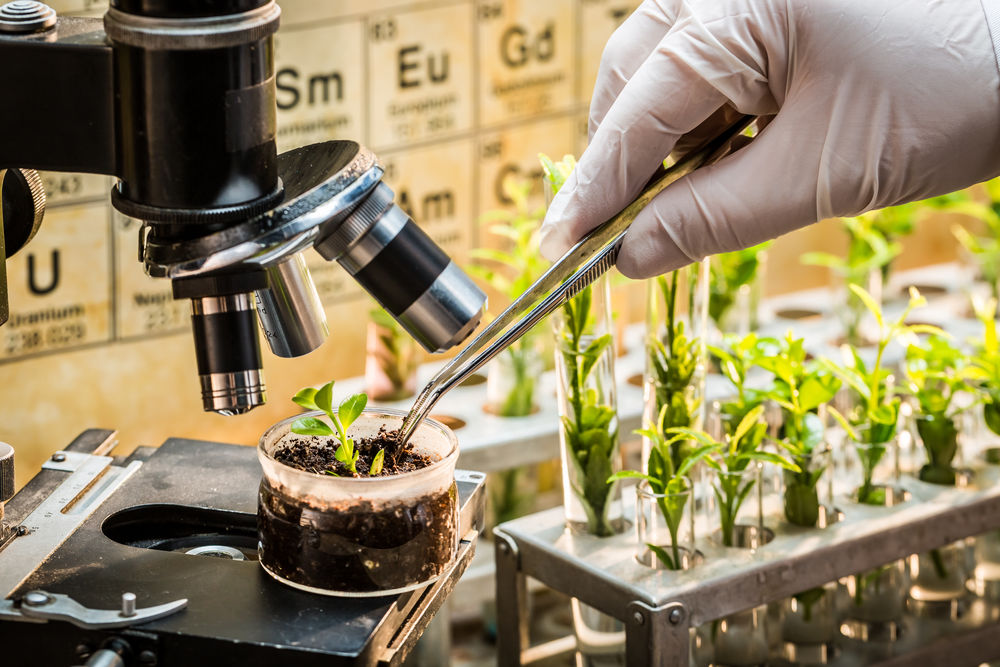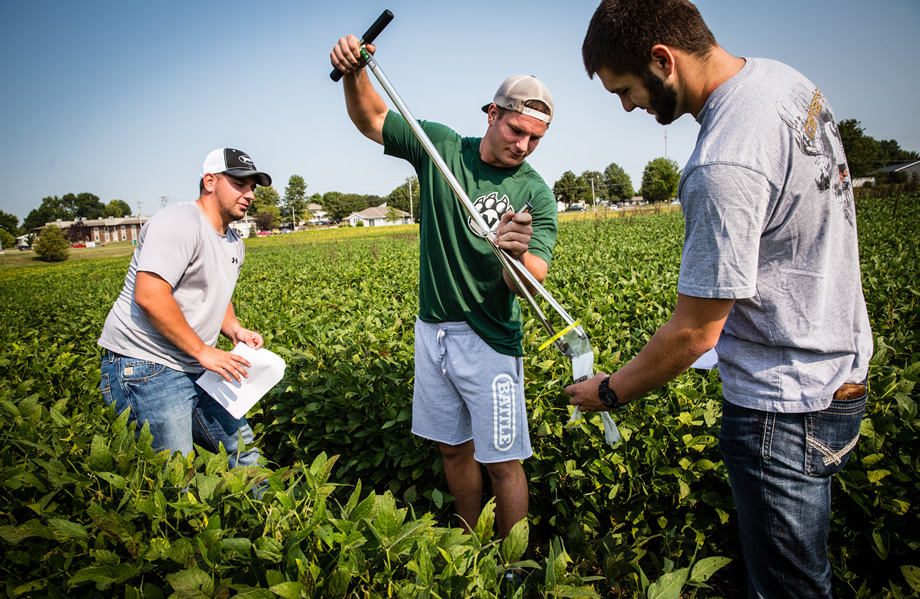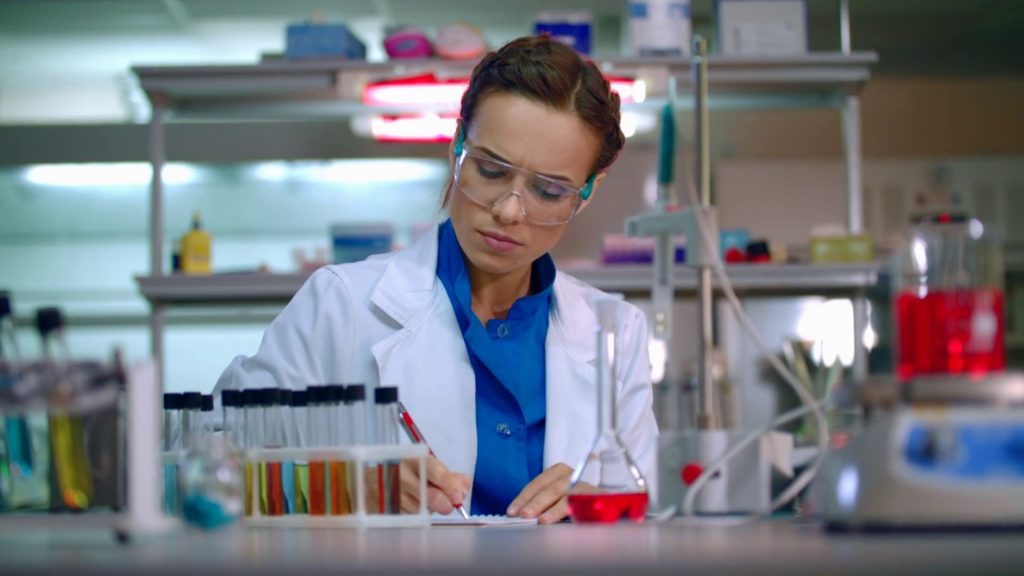Top 5 Jobs Abroad after studying Biotechnology Abroad

Kenznow brings to you the Top 5 Jobs Abroad after Studying Biotechnology Abroad to help you make an informed career decision that is best and suitable for you as per your interest and future goals. Also, check out the Top 5 Countries to Study Biotechnology Abroad.
Biotechnology is a broad area of Biology, involving the use of living systems and organisms to develop or make new and genetically improved products. The wide concept of biotechnology encompasses a wide range of procedures for modifying living organisms according to human purposes, going back to domestication of animals, cultivation of the plants, and “improvements” to these through breeding programs that employ artificial selection and hybridization. Modern usage also includes genetic engineering as well as cell and tissue culture technologies.
Biotechnology has applications in four major industrial areas, including health care, crop production and agriculture, industrial uses of crops and other products such as biodegradable plastics, vegetable oil, biofuels, and environmental uses. A series of derived terms have been coined to identify several branches of biotechnology, which include Bioinformatics (Gold Biotechnology), Blue Biotechnology, Green Biotechnology, Red Biotechnology, White Biotechnology, Yellow Biotechnology, Grey Biotechnology, Brown Biotechnology, Violet Biotechnology and Dark Biotechnology.
Biotech is helping to heal the world by harnessing nature’s own toolbox and using our own genetic makeup to heal and guidelines of research by Reducing rates of infectious disease; Saving millions of children’s lives; Changing the odds of serious, life-threatening conditions affecting millions around the world; Tailoring treatments to individuals to minimize health risks and side effects; Creating more precise tools for disease detection.
It is also using biological processes such as fermentation and harnesses biocatalysts such as enzymes, yeast, and other microbes to become microscopic manufacturing plants. Biotech is helping to fuel the world by Streamlining the steps in chemical manufacturing processes by 80% or more; Lowering the temperature for cleaning clothes and potentially saving $4.1 billion annually; Improving manufacturing process efficiency to save 50% or more on operating costs; Reducing the use of and reliance on petrochemicals; Using biofuels to cut greenhouse gas emissions by 52% or more; Decreasing water usage and waste generation; and Tapping into the full potential of traditional biomass waste products.
Biotech improves crop insect resistance, enhances crop herbicide tolerance and facilitates the use of more environmentally sustainable farming practices. Biotech is helping to feed the world by Generating higher crop yields with fewer inputs; Lowering volumes of agricultural chemicals required by crops-limiting the run-off of these products into the environment; Using biotech crops that need fewer applications of pesticides and that allow farmers to reduce tilling farmland; Developing crops with enhanced nutrition profiles that solve vitamin and nutrient deficiencies; Producing foods free of allergens and toxins such as mycotoxin, and Improving food and crop oil content to help improve cardiovascular health.
For your Study, Abroad Success, subscribe to Kenznow Advisory.
Check out the university comparison at Kenznow Study Abroad.
- Pharmaceutical Scientist: Pharmaceutical scientists are trained to discover, develop, test and manufacture new medications. These scientists are responsible for managing and completing experiments on drug-like molecules to determine their therapeutic and metabolic profiles and make improvements as necessary. Those with a preference for working in organic chemistry may be involved in compound design and synthesis as well as testing.

Average Salary: The Average salary of a Pharmaceutical Scientist as of 2021 as per Glassdoor after studying Biotechnology from the top countries in the world known for their brilliance in Biotechnology are given below:
| Country | Average Salary |
| United States of America | USD 1,00,000 |
| China | CNY 200,000 |
| United Kingdom | GBP 41,398 |
| Denmark | DKK 931,000 |
| Australia | AUD 174,000 |
Skills Required: Since Pharmaceutical Scientists’ main priority is to discover and develop new medication, they need to inculcate in themselves the skills to think critically and outside the box. They need to know how to manipulate complex medical data and how to decipher it. Use logic and reasoning to identify the strengths and weaknesses of alternative solutions, conclusions, or approaches to problems.
Key Skills: The key skills needed by a Pharmaceutical Scientist are knowledge of Math and Science to solve complex problems and to know natural processes and how it can be manipulated skillfully. Along with this, they need to have Communication Skills, Attention to detail, and be able to analyze different situations to determine outcomes or solve issues.
Upgrade and re-skill with the various online Courses and Certifications which will help you build your profile for the job of your dreams and excel in your field. Also check out the various Online Degrees from Leading foreign Universities which can be taken without quitting your job or leaving your city.
2. Toxicologist: A toxicologist is a scientist who has a strong understanding of many scientific disciplines, such as biology and chemistry, and typically works with chemicals and other substances to determine if they are toxic or harmful to humans and other living organisms or the environment.

Average Salary: The Average salary of a Toxicologist as of 2021 as per Glassdoor after studying Biotechnology from the top countries in the world known for their brilliance in Biotechnology are given below:
| Country | Average Salary |
| United States of America | USD 91,479 |
| China | CNY 415,770 |
| United Kingdom | GBP 30,750 |
| Denmark | DKK 461,938 |
| Australia | AUD 101,448 |
Skills Required: Since the top duties of a Toxicologist include studying the effect of Toxins and Radiation, researching how substances affect the human body, animals and the environment, writing reports and advising on how to safely handle toxic or harmful substances, they need to be qualified as well as possess certain important skills. Those skills include Analytical skills in order to effectively analyze data and conduct research, Collaboration and Communication Skills, Organization skills in order to collect large quantities of samples and label and organize accurately.
Key Skills: During a Health or Environmental crisis, it is very important for Toxicologists to have the skills of time management in order to work quickly, solve problems and find ways to prevent them in the stipulated time.
Explore your study abroad career options by logging on to Kenznow Bridge and get access to unbiased study abroad advisory. Login in now and hear from our Trusted Advisors, a right step for a successful career abroad.
3. Plant Breeding: Plant breeding uses principles from a variety of sciences to improve the genetic potential of plants. The process involves combining parental plants to obtain the next generation with the best characteristics. Breeders improve plants by selecting those with the greatest potential based on performance data, pedigree, and more sophisticated genetic information. Plants are improved for food, feed, fiber, fuel, shelter, landscaping, eco-systems services and a variety of other human activities.

Average Salary: The Average salary of a Plant Breeder as of 2021 as per Glassdoor after studying Biotechnology from the top countries in the world known for their brilliance in Biotechnology are given below:
| Country | Average Salary |
| United States of America | USD 94,927 |
| China | CNY 2,15,000 |
| United Kingdom | GBP 53,684 |
| Denmark | DKK 436,400 |
| Australia | AUD 90,480 |
Skills Required: As Plant Breeders work in a controlled environment such as greenhouses, they are required to have the ability to work independently, and manage a laboratory. Patience and resilience are two of the most important skills as research and development requires scientists to be patient. Technical and Analytical skills help plant breeders to develop seeds for stronger crop yields and create new kinds of plant species.
Key Skills: Plant Breeders need to have excellent research skills in order to be able to develop genetically new and improved plants.
At Kenznow Institute you can get an online degree from IUBH University, largest online university based out of Germany. A Bachelor’s or Master’s degree from IUBH enables one to work or study further in Germany/Europe. Check out details now.
4. Agricultural Scientist: Agricultural scientists investigate plants, animals and soils in order to research and eventually improve the quality of food, farming or the environment. It deals with food and fiber production and processing. They include the technologies of soil cultivation, crop cultivation and harvesting, animal production, and the processing of plant and animal products for human consumption and use.

Average Salary: The Average salary of an Agricultural Scientist as of 2021 as per Glassdoor after studying Biotechnology from the top countries in the world known for their brilliance in Biotechnology are given below:
| Country | Average Salary |
| United States of America | USD 83,886 |
| China | CNY 206,886 |
| United Kingdom | GBP 34,287 |
| Denmark | DKK 410,400 |
| Australia | AUD 1,00,000 |
Duties: Conduct research and experiments to improve the productivity and sustainability of field crops and farm animals. Create new food products and develop new and better ways to process, package, and deliver them. Study the composition of soil as it relates to plant growth, and research ways to improve it. Data-analysis skills as Agricultural scientists, like other researchers, collect data using a variety of methods, including quantitative surveys. They must then apply standard data analysis techniques to understand the data and get the answers to the questions they are studying.
Skills Required: Excellent knowledge in Crop and Soil composition as they work to improve crop yields and advise food and crop developers about techniques to enhance production.
If you are looking to prepare for the IELTS, which is a must to get into any foreign universities, do check out the best online IELTS test preparation courses by Magoosh and more, on offer with Kenznow.
5. Medical Scientist: A Medical Scientist studies diseases and conditions with the goal of improving human health. Through research, they determine the causes of diseases and then develops ways to prevent or treat them.

Average Salary: The Average salary of a Medical Scientist as of 2021 as per Glassdoor after studying Biotechnology from the top countries in the world known for their brilliance in Biotechnology are given below:
| Country | Average Salary |
| United States of America | USD 77,462 |
| China | CNY 2,00,000 |
| United Kingdom | GBP 30,829 |
| Denmark | DKK 536,361 |
| Australia | AUD 80,000 |
Skills Required: Medical scientists need to communicate effectively with the technicians and research assistants they supervise, work with and produce large amounts of data, take decisions wisely and they need to be able to observe even the slightest of changes in a sample or test result. And this is why they need to possess Effective Communication skills, Data Analytics Skills, Excellent Decision-Making Skills, Observational Skills and the Ability to think Critically during experiment.
Get the Kenznow Advisory Subscriptions now and be part of the growing tribe of students who are fulfilling their Study Abroad dreams with Kenznow. Subscribe for Kenznow Advisory Now.
Explore your study abroad career options by logging on to Kenznow Bridge and get access to unbiased study abroad advisory. Feel free to compare the ranking of various universities at Kenznow University Ranking. Students love Kenznow, check out the Kenznow Ratings given by students. You may share your queries with Kenznow or email us at [email protected].



